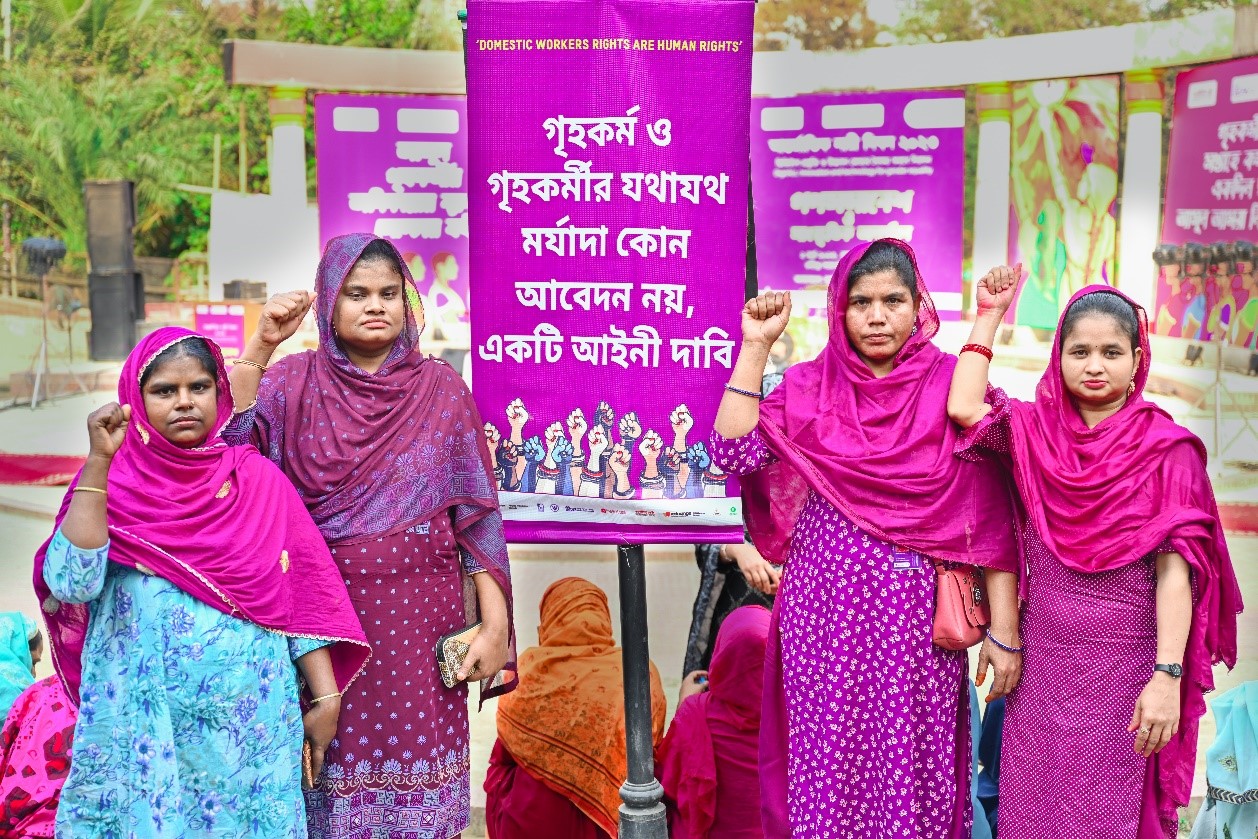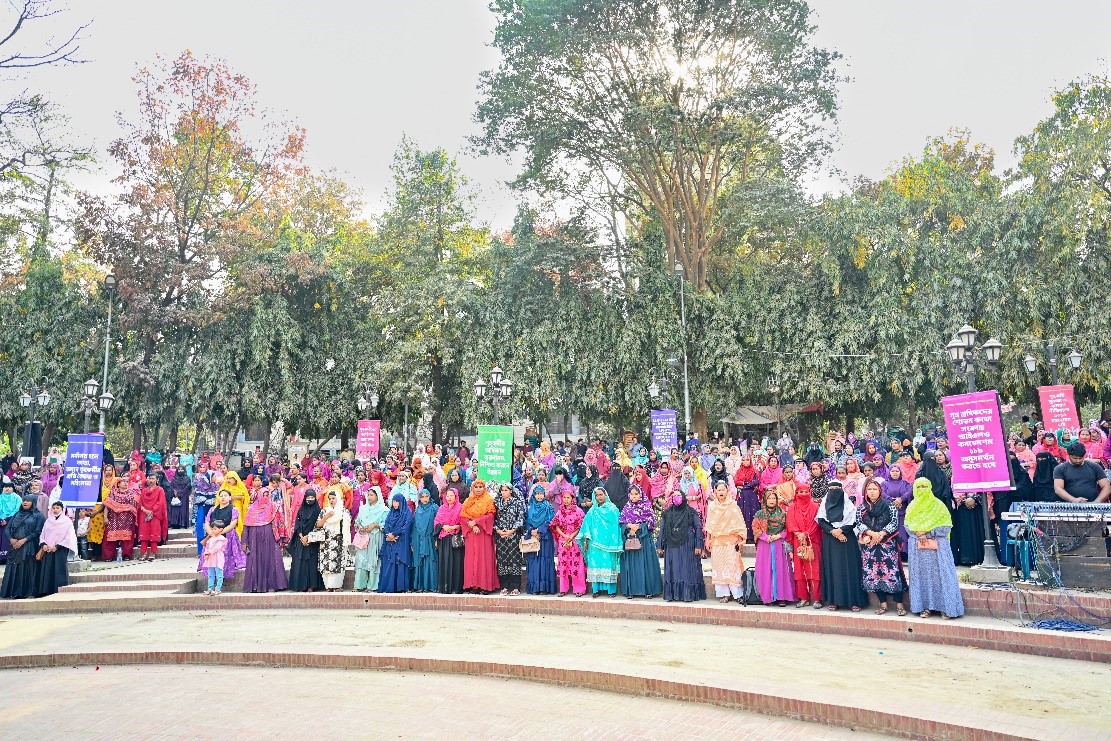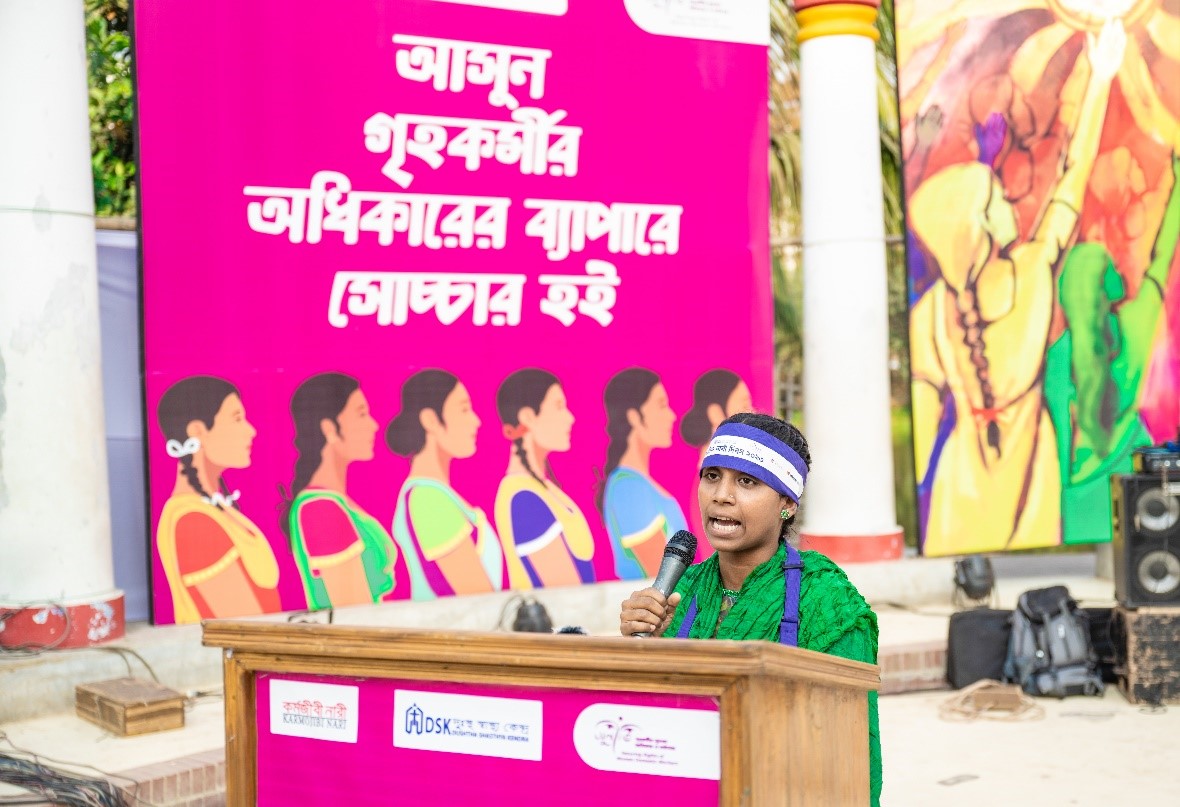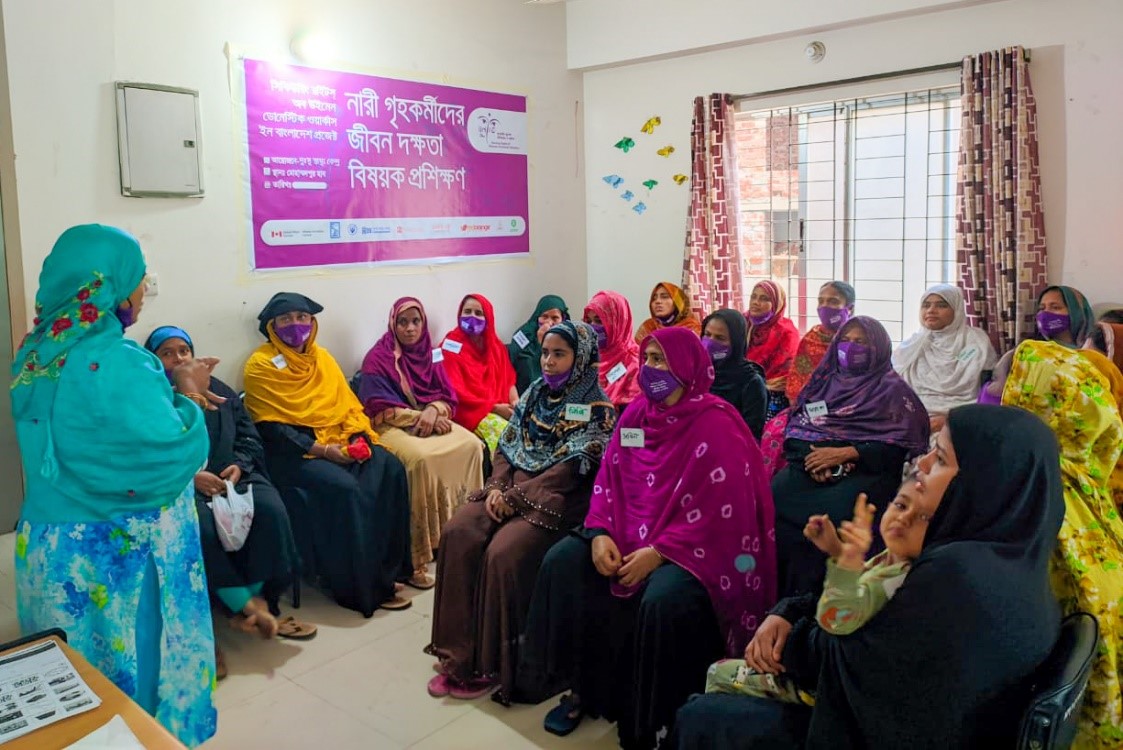Securing Rights of Women Domestic Workers in Bangladesh (SUNITI Project)
Securing Rights of Women Domestic Workers in Bangladesh has been started in 2019. DSK has started the project from August 2022. Total 7 partner NGOs: Karmojibi Nari (KN), Red Orange, Bangladesh Institute of Labour studies (BILS), Campaign for Popular Education (CAMPE), Hello Task, Underprivileged Children’s Educational Programs (UCEP) Bangladesh and Dushtha Shasthya Kendra are working in the project under the guidance of Oxfam Bangladesh. DSK is responsible for mobilization of Domestic Workers, Group Formation of DWs, Follow up of DWGs, arranging Life Skills Training of DWs and other campaign & advocacy initiatives to ensure the rights of DWs.
| Implemented Places | Target Population | Duration | Donor |
|---|---|---|---|
| Implemented Places: Mohammadpur, Badda, Khilgaon | 12,000 Domestic Workers (DWs) | BDT 71, 233,691 (BDT Seven Core twelve lakh thirty three thousand six hundred ninety one only) | The Government of Canada through Global Affairs Canada (GAC) and Oxfam in Bangladesh |
Objective
- Strengthened agency of women domestic workers to claim and defend their rights in relation to decent employment;
Improved social norms on DW rights, including increased recognition of DW as formal profession, promoted by policy makers, government and employers and the wider society.
Project Activity
- Mapping of existing Domestic Workers Groups/ Networks
- Recruit and train social mobilized
- Social mobilizers facilitate the establishment of new DW community groups as needed
- National Domestic Workers network/ Forum formed including existing groups/ networks and operationalize
- Meeting with community leaders, different levels of government conducted by DWGs and Network to advocate for DW rights
- Communication/engagement material on DWs’ issues and rights developed and distributed
- Life skill and rights training for women domestic workers and DWG members implemented
- Capacity building activities conducted to mobilize community support
- Rapid care Analysis on unpaid care work
- Reduce unpaid care work gap and support women domestic workers
- Conduct awareness-raising sessions with DWG and DWN on support services
- Arrange National Conference on Domestic Workers’ Rights and a National Convention of Domestic Workers
- Consultation meeting with employers/housing society, etc. on DWPWP and rights (Domestic workers protection and welfare policy)
- Organize awareness-raising events on domestic workers’ rights during key days (8 March – International women’s Day; 1 May – May Day; 16 June – International Domestic Workers Day; 29 November – Day for the elimination of VAWG; 10 December – International Human Rights Day).















